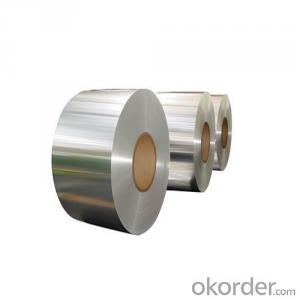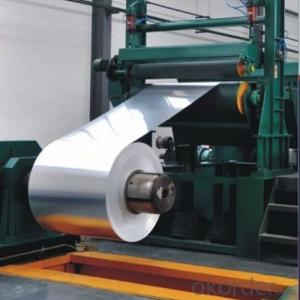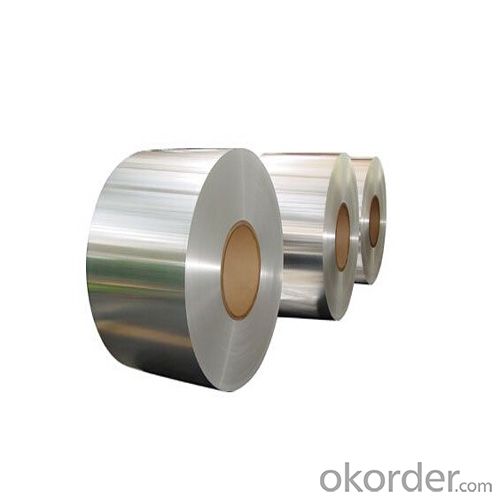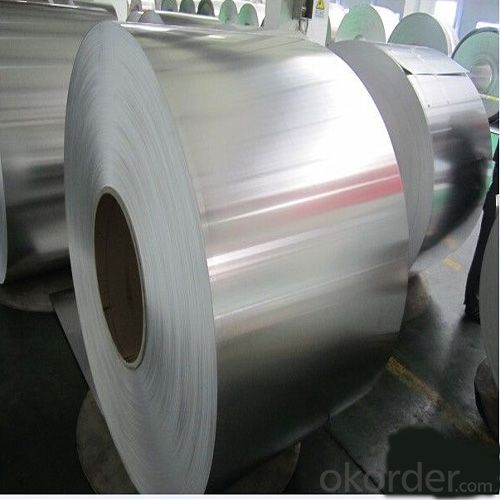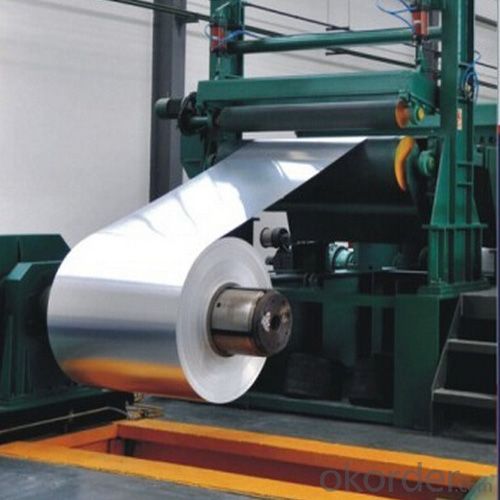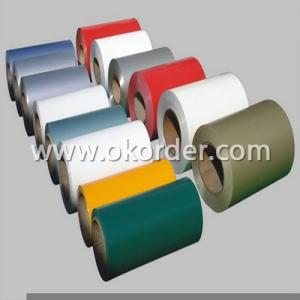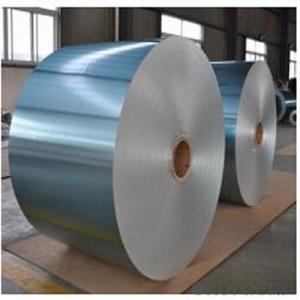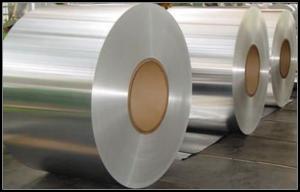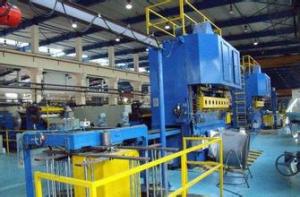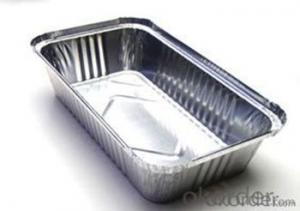Aluminium Fin Evaporator Coil with Best Price
- Loading Port:
- Shanghai
- Payment Terms:
- TT OR LC
- Min Order Qty:
- 5 m.t
- Supply Capability:
- 10000 m.t/month
OKorder Service Pledge
OKorder Financial Service
You Might Also Like
Specification
1.Structure of Aluminium Fin Evaporator Coil Description:
They are widely used in construction and decoration, hardware and electric appliances manufacture,
automobile manufacture and other industrial and civil purposes, such as electronic capacitor, rice
cooker, refrigerator, computer casting, lamp shade, air-conditioner, cosmetics cover and box, air-
conditioner radiator, inner container of disinfecting cabinet, ceiling board, automobile motherboard,
cover board and top board, etc.
2.Main Features of Aluminium Fin Evaporator Coil :
1) Size of copper pipe: Diameter: 7/7.94/9.52mm, Inner Grooved Or smooth tube High-tech and Economical Copper tube Condenser.
2)Auminium foil: Hydrophilic or bare
3) Fin type: Louver Fin, Flat fin, corrugated fin
4) Pitch of fins can be adjusted between 1.8-5.8mm
3. Aluminium Fin Evaporator Coil Images:
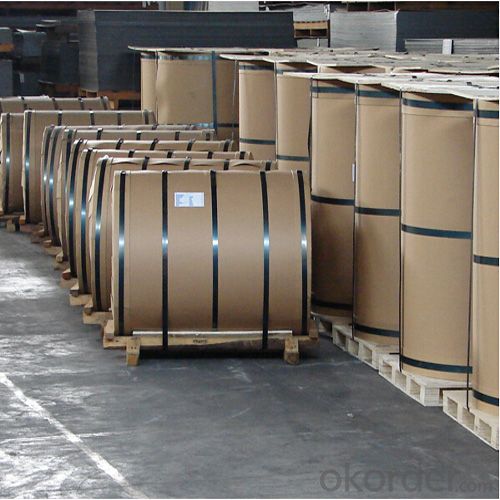
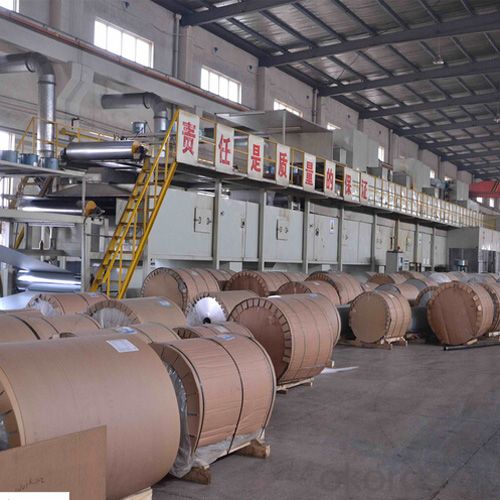
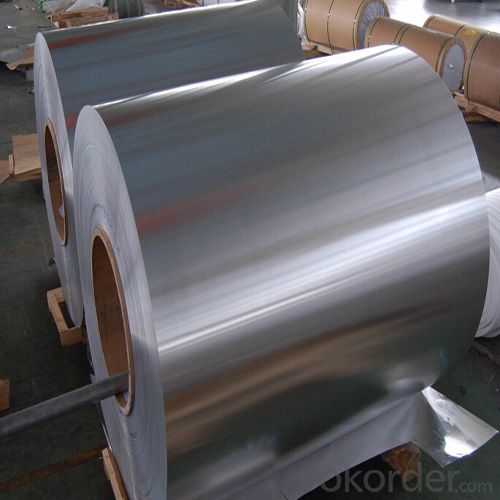
4. Aluminium Fin Evaporator Coil Specification:
| Alloy No. | Thickness (mm) | Width (mm) | Length (mm) | Temper | |
| A1050,A1060, A1070,A1100 | 0.2-100 | 20-2200 | 20-8000 | O,H12,H22,H14,H16,H18, H24,H26,etc | |
| 3A21,A3003,A3105,A3004 | 0.2-100 | 20-2200 | 20-8000 | O,H14,H18,H24,etc | |
| A5052 ,A5005,A5083,A5754 | 0.2-100 | 20-2200 | 20-8000 | O,H18,H24,H32,H34,H111,H112 ,etc | |
| A6061,A6082,A6063 | 0.2-200 | 20-2200 | 20-8000 | T4,T6, T651,etc | |
| A8011 | 0.2-100 | 20-2200 | 20-8000 | O,H12,H22,H14,H16,H18,H24,H26, etc | |
5.FAQ
Q1.How long have you been in this product?
A1:More than 10 years.
Q2. What's the minium quantity(MOQ)?
A2. 5 Metric tons
Q3. How long is shipping time?
A3. 7 (ready-made products)-25 days(OEM)
Q4. How do you guarantee the quality?
A4. 1. Cooperating and Exchaning experience with sevral quoted aluminum companies
2. Japanese and Swiss production line and skilled works (regular training and testing)
3. more than 10 years production experience.
Q5. Do you have after sale service?
A5. Yes. Any quality problem occurs within one year, pls take photoes,we will be responsible.
- Q: What are the steps to properly store an unused aluminum coil to prevent it from rusting?
- <p>To store an unused aluminum coil and prevent rusting, follow these steps: 1. Clean the coil thoroughly to remove any dirt or moisture. 2. Apply a thin layer of a rust inhibitor or light oil to the surface. 3. Wrap the coil in a protective plastic or wax paper to prevent moisture and air exposure. 4. Store the coil in a cool, dry place away from direct sunlight and humidity. 5. Ensure the storage area is well-ventilated to prevent condensation. 6. Periodically check the coil for any signs of rust and clean if necessary. By following these steps, you can effectively prevent rusting and maintain the quality of the aluminum coil.</p>
- Q: How are aluminum coils used in the production of electronic devices?
- The production of electronic devices heavily relies on aluminum coils, which perform a crucial role. When it comes to manufacturing the internal components of electronic devices like transformers, inductors, and electromagnets, aluminum coils are the go-to material. These coils are formed by winding aluminum wire around a core, creating a compact and efficient conductor for electrical currents. Transformers make use of aluminum coils to transfer electrical energy between circuits. By utilizing electromagnetic induction, these coils allow for voltage transformation. When a varying current flows through one coil, it induces a voltage in another coil. This process is essential in adjusting voltage levels, ensuring efficient power distribution in electronic devices and electrical systems. Inductors, another vital component in electronic devices, are constructed using aluminum coils. These coils resist changes in electrical current and store energy in their magnetic field. Aluminum coils possess low resistance, high conductivity, and the ability to handle high-frequency currents, making them perfect for inductor applications. They find their use in various electronic devices like power supplies, speakers, and filters to control current flow and regulate voltage. Furthermore, aluminum coils are utilized in the production of electromagnets, which are widely employed in electronic devices. The creation of electromagnets involves passing an electric current through a coil to generate a magnetic field. Aluminum coils are preferred due to their lightweight nature and excellent thermal conductivity, enabling efficient dissipation of heat in high-power applications. Moreover, the use of aluminum coils in electronic devices brings several advantages such as cost-effectiveness, lightweight construction, and excellent electromagnetic properties. Aluminum's lightweight characteristic allows for the production of compact and portable electronic devices, enhancing convenience for users. Additionally, its high thermal conductivity ensures efficient heat dissipation, which is critical in preventing overheating and maintaining proper functionality of electronic devices. In conclusion, aluminum coils find extensive usage in the production of electronic devices, serving various applications like transformers, inductors, and electromagnets. Their exceptional electrical conductivity, lightweight construction, and thermal conductivity make them an ideal choice for achieving efficient and reliable performance in electronic devices.
- Q: Why the end of the aluminum coil will have a yellow spot?
- Without coolant processing one, to see if there is no stain, so you can engage in removal of cooling liquid is not interference. Blank surface should have a layer of alumina film processing, heat, such conditions should make the cooling liquid and the alkaline layer friction reaction
- Q: Are aluminum coils suitable for use in heating applications?
- <p>Yes, aluminum coils can be used for heating. They are known for their excellent thermal conductivity, which allows for efficient heat transfer. Aluminum's lightweight nature and resistance to corrosion make it a popular choice in various heating applications, such as in electric heating elements, heat exchangers, and cookware. However, it's important to note that aluminum's low melting point means it's not suitable for high-temperature applications and should be used within safe temperature limits to prevent melting or damage.</p>
- Q: Can aluminum coils be formed or shaped?
- Yes, aluminum coils can be formed or shaped.
- Q: Can aluminum coils be used in automotive body panels?
- Automotive body panels can indeed utilize aluminum coils. Being both lightweight and corrosion-resistant, aluminum proves to be a suitable material for automotive purposes. The employment of aluminum coils in body panels yields numerous benefits, such as enhanced fuel efficiency owing to the reduced vehicle weight, improved handling and maneuverability, and increased durability. Moreover, aluminum boasts high recyclability, rendering it an environmentally conscious alternative for automotive production. Numerous automakers have already begun integrating aluminum coils into their vehicles, and this trend is anticipated to persist as the industry aims for lighter and more environmentally sustainable automobiles.
- Q: How are aluminum coils processed and shaped into different forms?
- Aluminum coils go through a series of processes to shape them into different forms. The first step is the uncoiling process, where the coil is unwound and straightened. This allows for easier handling and further processing. Next, the aluminum coil goes through a cleaning process to remove any dirt, grease, or other impurities that may be present on the surface. This is done to ensure that the final product has a clean and smooth finish. After cleaning, the coil is typically subjected to a series of heat treatments to improve its mechanical properties. This process, known as annealing, involves heating the coil to a specific temperature and then slowly cooling it down. Annealing helps to increase the aluminum's ductility, making it easier to shape and form. Once the coil is annealed, it can be processed into different forms using various techniques. One common method is called roll forming, where the coil is passed through a series of rollers that gradually bend and shape it into the desired form. Roll forming is often used to create sheets, strips, or tubes. Another popular shaping technique is called stamping, which involves using a die and press to cut or shape the aluminum coil into specific shapes. Stamping is commonly used to create intricate designs or components with precise dimensions. In addition to roll forming and stamping, other methods such as extrusion, bending, and welding can also be used to shape aluminum coils into different forms. These processes allow for the creation of a wide range of products, including automotive parts, household appliances, construction materials, and more. Overall, the processing and shaping of aluminum coils involve a combination of cleaning, heat treatment, and various forming techniques. These processes ensure that the aluminum is transformed into the desired form while maintaining its structural integrity and desired properties.
- Q: This question asks about the current market demand for aluminum coil, which is a versatile material used in various industries.
- <p>The market demand for aluminum coil is significant and growing due to its wide range of applications across industries such as construction, automotive, aerospace, packaging, and electronics. Its lightweight, corrosion resistance, and recyclability make it a preferred material for many applications. The demand is influenced by economic growth, technological advancements, and sustainability initiatives. As countries focus on greener construction and manufacturing processes, the demand for aluminum coil is expected to increase further.</p>
- Q: Aluminum coil area, with aluminum sheet area, how is not the same?
- Direct measurement length and width calculation area of aluminium plate;The aluminum coil can measure the volume of the aluminum coil and then calculate the area by dividing the thickness. You can also measure the mean diameter, calculate the perimeter, multiply the number of laps, the width, and calculate the area.
- Q: How are aluminum coils protected against scratching?
- Aluminum coils are typically protected against scratching through various methods such as applying a protective film or coating, using protective packaging materials, or employing proper handling and storage procedures to minimize contact with abrasive surfaces.
Send your message to us
Aluminium Fin Evaporator Coil with Best Price
- Loading Port:
- Shanghai
- Payment Terms:
- TT OR LC
- Min Order Qty:
- 5 m.t
- Supply Capability:
- 10000 m.t/month
OKorder Service Pledge
OKorder Financial Service
Similar products
Hot products
Hot Searches
Related keywords
